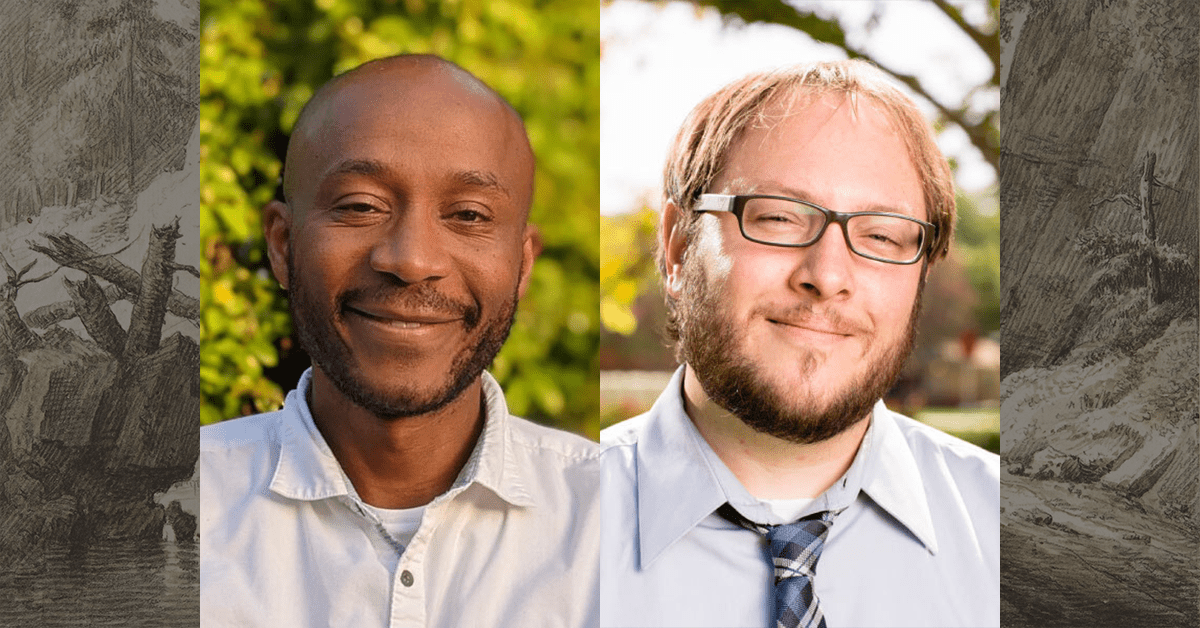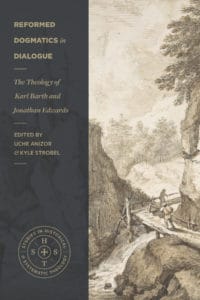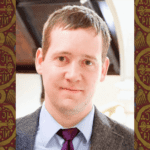
This week we are highlighting three new volumes in the Studies in Historical and Systematic Theology (SHST) series recently published this month. Today, we interview Uche Anizor and Kyle C. Strobel about their new book Reformed Dogmatics in Dialogue: The Theology of Karl Barth and Jonathan Edwards.
Lexham Press: What hath Karl Barth to do with Jonathan Edwards?
Uche Anizor: They were both Reformed theologians who sought to retrieve or retain a commitment to God’s revelation as that which grounds Christian speech about God and the Christian life before God–all this in the face of the various human-centered theologies on offer. The challenges to the faith were different in each of their times, as they are in our day, yet their approaches to these challenges can be instructive.
Kyle C. Strobel: Both Barth and Edwards are reading the Reformed tradition in an attempt to wield its fundamental insights in a new mode. Neither are attempting to leave the Reformed tradition, but neither are merely parroting it either. Sometimes this leads to a profound insight, and at other times, for both thinkers, it can lead to unfortunate conclusions. But as is true of all great theological minds, it is not only their insights, but the errors, that can be so insightful. I think Barth and Edwards are profoundly important thinkers for constructive theology precisely because of that fact.
LP: What are some of the surprising ways that cross-pollinating Edwards and Barth provides fresh insights for contemporary theology?
Anizor: They ask similarly probing questions of identifiably Reformed ways of framing doctrines and reframe things for their day. I think, for example, of their thinking through the doctrine of the person and work of Christ, or the doctrine of election. Both try to offer robust, christocentric, and fairly comprehensive visions, but go about it differently. Studying both their approaches and theological judgments would be helpful for others seeking to do theology constructively in our day.
Strobel: Both thinkers are compelling in places where contemporary theologians are rediscovering the tradition. If we take theological aesthetics, for instance, these two theologians are two of the greatest protestant minds on beauty and its function in a theological system. Both are trying to construct doctrines of God that are simultaneously traditional, in a real sense, and yet idiosyncratic in another sense. Both seek to reorient metaphysics, creation, evil, and good in a theocentric system that provides a distinctively Christian vision to these doctrines.
LP: What can Edwards scholars learn from Barth, and vice versa?
Anizor: I hope Barth scholars (and non-scholars) would appreciate in Edwards the constant and rich interchange between theology and piety, and how they cannot be divorced in the work of the Christian theologian. I’d hope Edwards scholars would gain fresh appreciation for how Barth’s thoroughgoing christocentricity (not absent in Edwards) raises questions for and sharpens the Reformed tradition that Edwards represents in his own way.
Strobel: I think Edwards scholars can read Edwards alongside Barth to glimpse the logic and “theological pressure” certain features of Edwards’s thought applies across a theological system. I think the contrast with Barth – the places where they differ radically – can illuminate the instincts that drive Edwards’s theology, and the theological creativity he brings to the table. In particular, I think it is in the places where both thinkers are profoundly original, that reading them together proves fruitful. The divine attributes, for instance, unveils two astounding theological minds at work, seeking to be faithful to Scripture and the tradition while also attending to what they consider faulty theological constructs in their own day.
LP: What do you hope readers grasp from reading this book?
Anizor: I’d love for readers to gain a fresh sense of the beauty, creativity, and comprehensiveness of the Reformed tradition that is embodied uniquely by these men.
Strobel: I hope readers will get a glimpse into the breadth and depth of these two minds as an encouragement to engage them for constructive theology and pastoral ministry.
LP: What one work from Edwards and Barth would you recommend that the uninitiated reads first?
Anizor: For Edwards, I would direct new readers to The End for Which God Created the World, as this presents most clearly some of the foundational assumptions underlying Edwards’s God-centered vision. For Barth, I would go to Evangelical Theology for his general orientation to the theological task (and it’s easier to read than other writings) and, perhaps, Church Dogmatics 4/1.
Strobel: I always encourage folks who are new to Edwards to start with Charity and Its Fruits, which is Edwards’s exposition of love from 1 Corinthians 13. For a shorter work that is the best summary of Edwards’s thought I know of, read his letter to a grieving mother that we call “Letter to Lady Mary Pepperrell.” For Barth, I would start with his Evangelical Theology, which is a great place to initially get both his approach to theology as well as his writing style.
Reformed Dogmatics in Dialogue: The Theology of Karl Barth and Jonathan Edwards
Two Reformed giants in conversation
Jonathan Edwards and Karl Barth are widely considered to be the greatest North American and Swiss theologians, respectively. Though situated in vastly different contexts and separated by nearly two hundred years, they shared intriguing similarities. Both employed exegesis, theology, and philosophy with ease. Both reasoned with unique quality, depth, and timelessness. Both resisted liberal shifts of their day while remaining creative thinkers. And both were Reformed without uncritically assuming the tradition.
Edited by Uche Anizor and Kyle C. Strobel, Reformed Dogmatics in Dialogue engages Edwards and Barth for constructive dogmatics. Each chapter brings these theologians into conversation on classic theological categories, such as the doctrine of God, atonement, and ecclesiology, as well as topics of particular interest to both, such as aesthetics and philosophy. As with all great theologians, Edwards and Barth continue to illuminate. Readers will appreciate their rigor of thought and devotion to Christ.








